Cherubim Figure
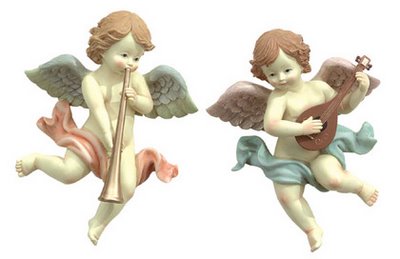
Celestial Hierarchy - Levels of Angels
(ranked highest to lowest)
Seraphim
Cherubim
Thrones
Dominions
Virtues
Powers
Principalities
Archangels
Angels
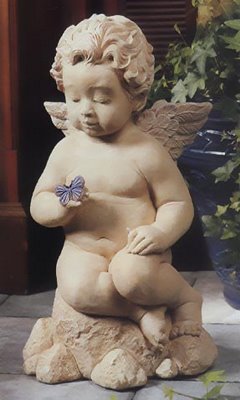
A deity or a god, is a postulated preternatural being, usually, but not always, of significant power, worshipped, thought holy, divine or sacred, held in high regard, or respected by human beings.
They assume a variety of forms, but are frequently depicted as having human or animal form. Sometimes it is considered blasphemous to imagine the deity as having any concrete form. They are usually immortal. They are commonly assumed to have personalities and to possess consciousness, intellects, desires, and emotions much like humans. Such natural phenomena as lightning, floods, storms, other "acts of God," and miracles are attributed to them, and they may be thought to be the authorities or controllers of every aspect of human life (such as birth or the afterlife). Some deities are asserted to be the directors of time and fate itself, to be the givers of human law and morality, to be the ultimate judges of human worth and behavior, and to be the designers and creators of the Earth or the universe. Some of these "gods" have no power at all—they are simply worshipped.
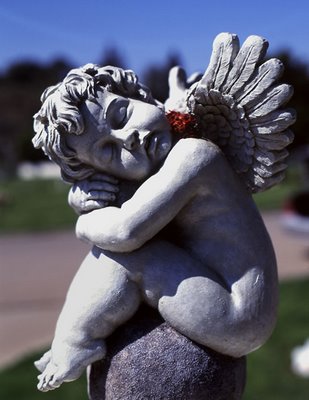
The English word ''deity'' is from the Latin "deus", meaning 'god'. Similar is the Sanskrit "deva", a god or celestial being. Related are words for the sky: Latin ''dies'', day, ''divum'', the open sky, Sanskrit ''div'', ''diu'', sky, day, shine. Also related are ''divine'' or ''divinity'' from Latin ''divinus'' from ''divus''.
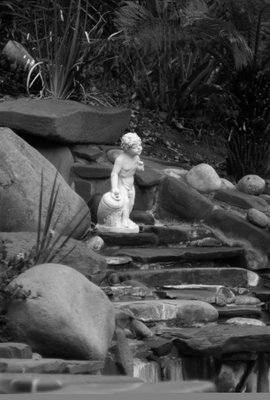
Some are thought to be invisible or inaccessible to humans— to dwell mainly in otherworldly, remote or secluded and holy places, such as Heaven, Hell, the sky, the under-world, under the sea, in the high mountains, or deep forests, or in a supernatural plane or a celestial sphere—choosing but rarely to reveal or manifest themselves to humans, and to make themselves known mainly through their effects. While a monotheistic God (one god) is thought of as dwelling in Heaven, such a God is also said to be omnipresent, though invisible.
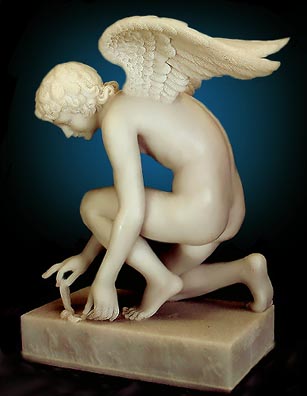
In polytheism (many gods), gods are conceived of as a counterpart to humans. In the reconstructed and hypothetical Proto-Indo-European, humans were described as ''tkonion'', "earthly", as opposed to the gods which were ''deivos'', "celestial". This almost symbiotic relationship is present in many later cultures: humans are defined by their station subject to the gods, nourishing them with sacrifices, and gods are defined by their sovereignty over humans, punishing and rewarding them, but also dependent on their worship. The boundary between human and divine in most cultures is by no means absolute. Demigods are the offspring from a union of a human with a deity, and most royal houses in Antiquity claimed divine ancestors.
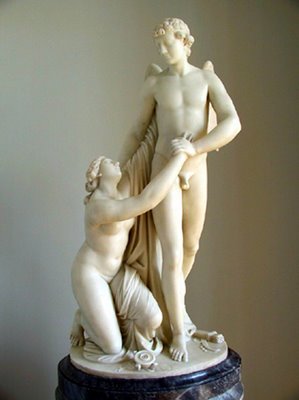
The Seven Deadly Sins
- Pride
- Avarice/Greed
- Envy
- Wrath/Anger
- Lust
- Gluttony
- Sloth










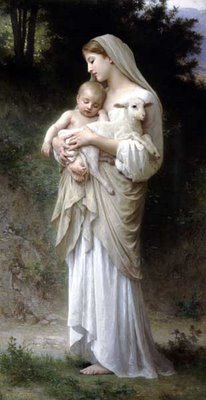


0 Comments:
Post a Comment
<< Home